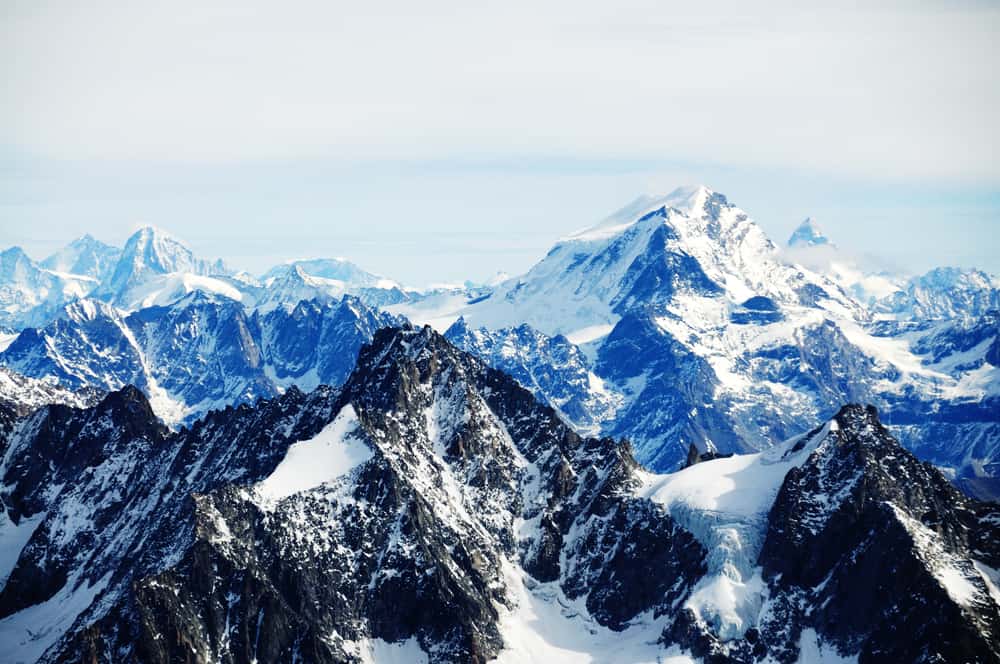How Much Does a Mountain Weigh? Exploring the Weight of Geological Giants
The weight of natural formations like mountains has always been a topic of curiosity and wonder among both scientists and the general public. "How much does a mountain weigh?" seems like a simple question, but the answer involves complex geological and mathematical considerations. In this article, we will delve into the factors that contribute to a mountain's weight, the methods used to estimate it, and the significance of this knowledge in understanding Earth's processes.
1. The Composition of Mountains
To comprehend the weight of a mountain, we first need to understand its composition. Mountains are predominantly made up of rocks, which can vary in density and composition.
The rocks found in mountains are typically igneous, sedimentary, or metamorphic, each with differing densities due to their unique formation processes.
The weight of a mountain depends on the volume and density of these rocks.
2. Calculating Mountain Weight
Estimating the weight of a mountain involves intricate calculations that take into account its volume and the density of its constituent rocks. One method used is the buoyancy principle, similar to how ships float in water.
By calculating the displacement of the crust beneath a mountain, geologists can estimate its weight. Advanced techniques like gravimetry and satellite measurements also aid in these calculations.
3. Tectonic Forces and Mountain Formation
Mountains are born from the colossal forces of tectonic plate movement. The collision of plates can cause rocks to fold, buckle, and thrust upwards, forming majestic mountain ranges.
This process influences the weight of a mountain, as the immense pressures involved contribute to the density and composition of the rocks.

how much does a mountain weigh
4. Erosion's Role
While tectonic forces build mountains, erosion works tirelessly to tear them down. Wind, water, and ice erode mountains over millions of years, gradually wearing away rocks and altering the mountain's weight.
This ongoing battle between tectonic forces and erosion results in a dynamic equilibrium that shapes the Earth's surface.
5. Mountains as Geological Barometers
Studying the weight of mountains offers insights into the Earth's inner workings. Changes in a mountain's weight can indicate shifts in tectonic forces or volcanic activity beneath the surface.
By monitoring weight fluctuations, scientists can better understand potential geological hazards, aiding in disaster preparedness and mitigation.

how much does a mountain weigh
6. The Weighing Techniques
Geologists employ various techniques to estimate mountain weight. Gravimetry involves measuring the gravitational pull at different points on Earth's surface, providing data about subsurface rock density.
Satellite-based remote sensing measures subtle changes in the Earth's gravitational field caused by variations in mass, aiding in weight calculations.
7. Real-world Applications
Understanding the weight of mountains extends beyond scientific curiosity. Engineers consider mountain weight when designing infrastructure like bridges, tunnels, and roads in mountainous regions.
Additionally, knowledge of mountain weight contributes to geological modeling, aiding in predicting volcanic eruptions and earthquakes.

how much does a mountain weigh
8. Limitations and Uncertainties
It's important to note that estimating a mountain's weight is a complex process with inherent uncertainties.
Variations in rock composition, voids within rocks, and the Earth's heterogenous crust all contribute to measurement challenges. As such, weight calculations are often approximations.
9. Conclusion
The question, "How much does a mountain weigh?" delves into the intricate interplay between geological processes, tectonic forces, and erosion.
While calculating the exact weight of a mountain is a challenging endeavor, the methodologies developed provide valuable insights into Earth's dynamics.
As technology advances, our understanding of mountain weight will likely become more refined, unlocking even more mysteries of our planet's fascinating geological history.